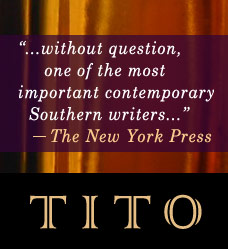A Writer by Any Other Name, New York Times, July 30, 2013
Today's New York Times asked several writers to choose a hypothetical pen name and describe what kind of book they might write under — or perhaps behind — that name.
Since, once again, they neglected to include my submission, I give it to you here:
PEN NAME: Consuela-Tiffany del LaCohuta
GENRE: Best Sellers
TITLE: Patriarchy and Neo-Jungian Interpretations of de Sade's Phenomenology of the Vagina: A novel
Afflicted with AIDS by her alcoholic step-father, twelve-year-old Perra is kidnapped by a gang of old white males and taken to Kingston where she is tricked into acquiring a heroin addiction and forced to satisfy the demands of members of the ruling junta. And yet, in spite of these obstacles, our twelve-year-old heroine manages to come into possession of certain illegal feminist pamphlets and slowly educates herself on the need for self-assertion and getting in touch with her own inner strengths. Having at last overturned the male junta, our "little" Perra assumes control of her country's incipient nuclear arsenal and is able finally to make demands on those who had dissed her in those long-ago times.
http://opinionator.blogs.nytimes.com/2013/07/27/a-writer-by-any-other-name/?_r=1
Since, once again, they neglected to include my submission, I give it to you here:
PEN NAME: Consuela-Tiffany del LaCohuta
GENRE: Best Sellers
TITLE: Patriarchy and Neo-Jungian Interpretations of de Sade's Phenomenology of the Vagina: A novel
Afflicted with AIDS by her alcoholic step-father, twelve-year-old Perra is kidnapped by a gang of old white males and taken to Kingston where she is tricked into acquiring a heroin addiction and forced to satisfy the demands of members of the ruling junta. And yet, in spite of these obstacles, our twelve-year-old heroine manages to come into possession of certain illegal feminist pamphlets and slowly educates herself on the need for self-assertion and getting in touch with her own inner strengths. Having at last overturned the male junta, our "little" Perra assumes control of her country's incipient nuclear arsenal and is able finally to make demands on those who had dissed her in those long-ago times.
http://opinionator.blogs.nytimes.com/2013/07/27/a-writer-by-any-other-name/?_r=1








